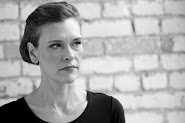I studied Gertrude Stein. She said of herself that she listens while she speaks. I thought for years about her remark. I postulated that reading is like listening and writing is like speaking. If I put the two ideas together, then Gertrude Stein read her listeners.
I was a student for 22 years. I taught for five of those years plus two more. I worked as a newspaper copy and wire editor for two years. I ran the front desk at a veterinary clinic.
I listen really well and deeply, so I made a good student. I remembered everything the professors told us, practically ever. I was a student in the class, not the only student in the class. We were listening and apprehending and appreciating and admiring and aspiring. We were to be promoted to professor ourselves one day. Our brains were a big notebook with files and tabs, with cross references, with things that might come up again, with names, with titles, with lineages, even with publication names and names of famous editors, of bookstores in other cities, of bookstores in our own city, of our worries. We worried about men and women, about pets, about violence, about rights, about places, about kings and queens and coronation couples, about rejecting religion, about drugs, about alcohol, about smoking, and sex. We didn't have children or own housing. We worried about transportation, about our cars.
When I left school with my literary notepad, my brain, crammed with notes for a tomorrow of teaching and meeting at cafes and bookstores, it was a language, a shorthand for something. We were not to be professors as we had had professors nor teachers as we had had teachers. We were to teach reading and writing fundamentals to deserving and urban students. Or do something else.
My significant other in 1983 had told me not to be a "professional feminist," so I dropped it like a bad potato; I have almost forgotten the books by those women that had formed a first notebook in college: Margaret Atwood, Virginia Woolf, Emily Dickinson, H.D., Helene Cixous, Annette Kolodny, Adrienne Rich, Sylvia Plath. I memorized his shelves, which was good as working at City Lights or Woodland Pattern. My father had told me not to be a "professional student," so I prepared for life as a teacher. Had I written a scholarly dissertation instead of a creative one, it would have been about the work of Helene Cixous, Leslie Scalapino, Lorrie Moore, Amy Hempel, Lydia Davis, and Clarice Lispector: Contemporary Experimental Writers, notes I wrote briefly in my foreword to my own work so I could leave school faster. I could have stayed.
After school was over, the notebook was useless in trips to bars. I learned more about theater in bars. There were people who knew about literature in the bars, but no one was mentioning it. They had their mental notebooks, too, and I could practically guess who their authors were by spending two hours alone with them or in a group. We gave lipservice to our authors but only rarely. Mostly, we were drinking beer and whiskey to forget them. They had served us but only so long as we were in school. The other worries that had crowded around the books in our minds took over until cars and men and women and sex and smoking and food and apartments were all there were to think about. Two years went by, and I discovered Ayn Rand on a shelf. She was not one of our authors. I heard more about Stephen King and Anne Rice. I found the Big Book of AA while cleaning someone's room. I noticed the encyclopedia. I hurried to the dictionary with crazy last-minute corrections to my 22-year opus, my life as a student. I was not a professional student! I was not a professional feminist!
Today, though my father's advice was correct, I would like to be a professional student if only the universities would pay for it. I would learn Swedish and Spanish. I would take economics. I would write about economics and poetry. I would do it by listening and learning, by showing up, by paying homage, and taking shortcuts, by publishing little or nothing, by taking a bus to avoid parking, by lunching alone.
Subscribe to:
Post Comments (Atom)













No comments:
Post a Comment